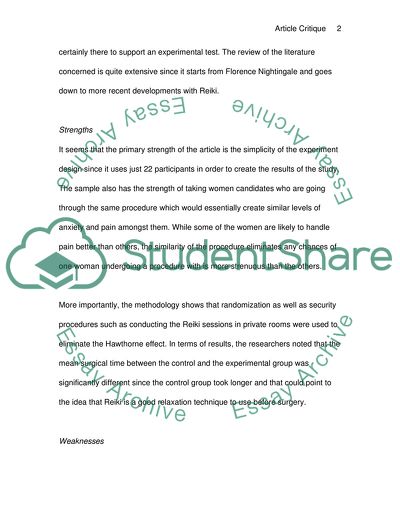Cite this document
(Critique Article Example | Topics and Well Written Essays - 1103 words, n.d.)
Critique Article Example | Topics and Well Written Essays - 1103 words. https://studentshare.org/medical-science/1712652-the-effect-of-reiki-on-pain-and-anxiety-in-women-with-abdominal-hysterectomies
Critique Article Example | Topics and Well Written Essays - 1103 words. https://studentshare.org/medical-science/1712652-the-effect-of-reiki-on-pain-and-anxiety-in-women-with-abdominal-hysterectomies
(Critique Article Example | Topics and Well Written Essays - 1103 Words)
Critique Article Example | Topics and Well Written Essays - 1103 Words. https://studentshare.org/medical-science/1712652-the-effect-of-reiki-on-pain-and-anxiety-in-women-with-abdominal-hysterectomies.
Critique Article Example | Topics and Well Written Essays - 1103 Words. https://studentshare.org/medical-science/1712652-the-effect-of-reiki-on-pain-and-anxiety-in-women-with-abdominal-hysterectomies.
“Critique Article Example | Topics and Well Written Essays - 1103 Words”. https://studentshare.org/medical-science/1712652-the-effect-of-reiki-on-pain-and-anxiety-in-women-with-abdominal-hysterectomies.


